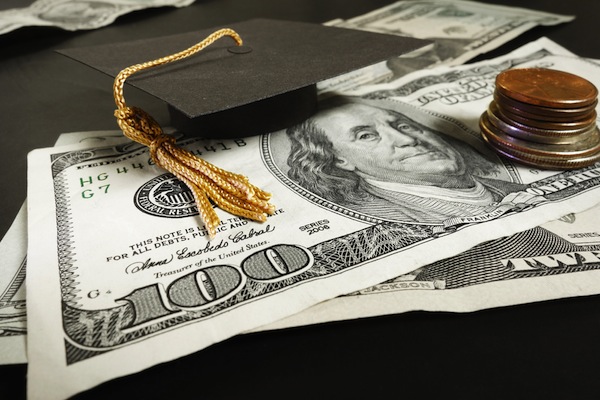House GOP to Set Student Loan Interest Rates to the Market

WASHINGTON, D.C. -- House Republicans released a bill last week to prevent student loan interest rates from doubling by permanently setting them according to the markets, an idea initially put out by President Obama’s 2014 budget proposal.
The bill, known as the "Smarter Solutions for Students Act," would include all federal loans, except the Perkins loan and cap the rates at 8.5 for Stafford loans and at 10.5 percent for graduate and parent PLUS loans. Currently, loans for Stafford subsidized, unsubsidized, and parent PLUS are at 3.4, 6.8, and 7.9 percent, respectively. It could save borrowers up to $1,000 a year, according to a report by the Associated Press. The bill was introduced by House Education and Workforce Committee Chairman John Kline (R-Minn.).
Interest rates under his bill for the Stafford loan would be 4.4 percent later this year and could reach up to 7.8 percent in the next 10 years based on the markets. Kline said that “a rate based on prevailing market rates, plus a cap, would help stabilize federal loan programs and still allow students to take advantage of lower rates when they are available.”
There were approximately 38 million student loan borrowers with over $1.1 trillion in outstanding debt as of fiscal year 2012, according to the Consumer Financial Protection Bureau. The average borrower has an outstanding balance of over $26,000.
Kline also said borrowers should no longer have to fear rates changing drastically each year based on politics.
“It’s time to move away from a system that allows Washington politicians to use student loan interest rates as bargaining chips, creating uncertainty and confusion for borrowers,” Kline said in a statement to the committee.
The current interest rates, negotiated annually by Congress, have been set at 3.4 percent for the Stafford loan since 2011. Congress could not reach an agreement last year when the rates were to expire and go back to 6.8 percent. Instead, they agreed to extend the current rates for one year where it is set to expire on July 1 if another solution is not passed.
"Maintaining the current 3.4 percent rate is expensive. It cost the government $6 billion just last year," said Kline's spokeswoman Alexandra Sollberger.
Massachusetts Institute of Technology finance professor Deborah Lucas echoed Kline’s concerns in a committee hearing.
“[T]he volatility makes it more difficult for prospective students to assess the affordability of pursuing a higher education,” Lucas said.
Several House Democrats, including Karen Bass of Los Angeles, openly opposed Kline’s bill, believing it to be unstable because rates will continue to change according to the market.
Bass introduced her own version that forgoes annual negotiations, permanently maintains the current interest rate at 3.4 percent and prevents interest from accruing for unemployed jobseekers. Her spokesman Kevin Harris criticized Kline and the GOP for giving the impression that their bill protects borrowers. He highlighted that the GOP is not in favor of maintaining the current rate.
“If we can allow big banks to borrow at less than 1 percent, then we can do better for our students than what the Kline bill calls for,” Harris wrote. “[Kline’s bill] is to essentially provide borrowers with no stability in how much interest they would have to pay from year to year.”
Harris said the government is estimated to collect $34 billion next year from student loan debt and should use that money to invest in students by offering low rates. He cited the Consumer Financial Protection Bureau’s warning that student debt will hamper the economy in the long term by preventing students from purchasing homes, starting businesses or making investments.
Sollberger acknowledged the Bass' intentions, but had reservations.
"So you’re giving students a break, but who pays for it?” wrote Sollberger in response to Harris' statement.
On the other side of Congress, Sen. Elizabeth Warren (D-Mass.) last Wednesday introduced a bill that would cut the student loan rate for one year to 0.75 percent, the rate that big banks get. Warren discredited notions that low rates are too expensive for the government, but rather that it only chooses to offer low rates to a select few.
“The biggest banks in the country – the ones that wrecked our economy and cost millions of Americans their jobs – pay next to nothing on their debt, while students pay nine times as much,” Warren wrote in a statement.





